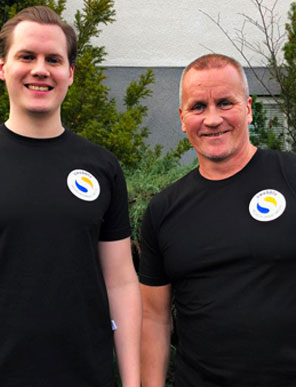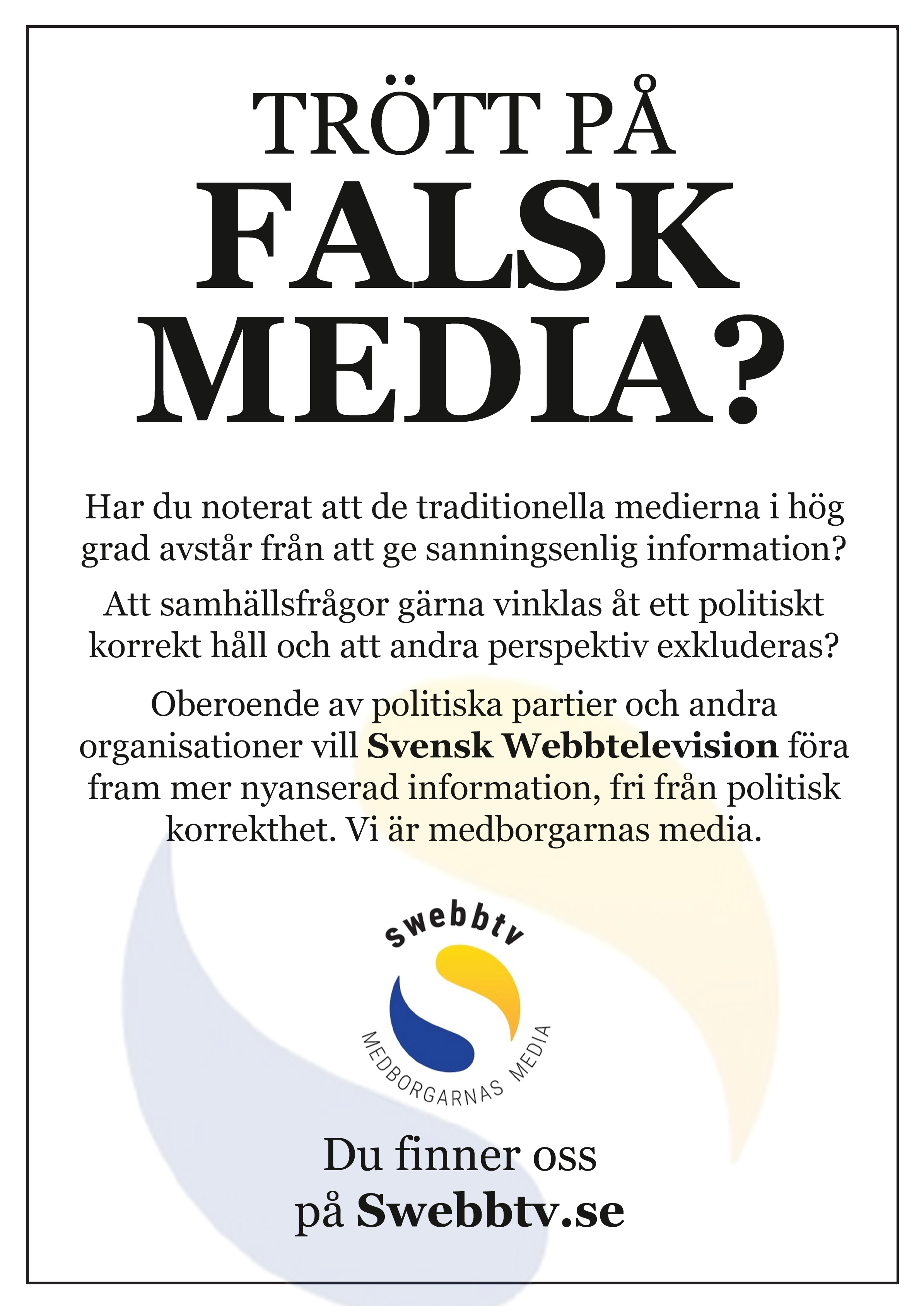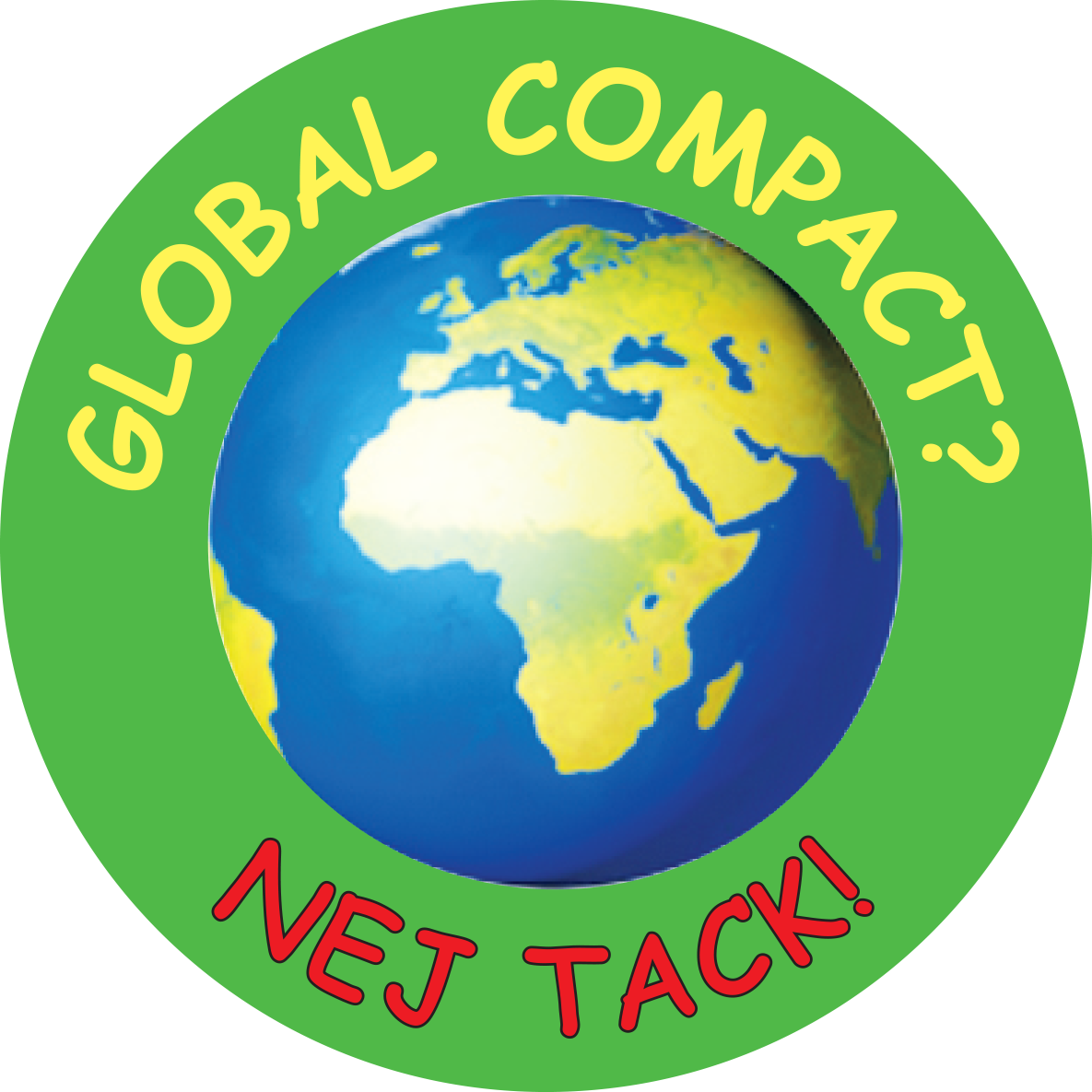Summary: This is the fourth in our series reviewing power brokers, in which Jan Tullberg comments on the SVT program "Ekdal and Ekdal" on 5 March, discussing migration.
"Ekdal and Ekdal" boast that they deal with the big issues, but in fact they did not touch any important issue at all. The program was an elaborate pseudo-debate to calm viewers' fears about the "refugee crisis".
Jan Tullberg begins by stating that the program was not significantly about problems related to immigration. It was more about how the immigration debate has been conducted in the media. Jan's first major objection was to a graph of the number of asylum seekers. It was highlighted as a kind of prerequisite for the discussion. The curve showed a significant peak in 2015 and then returned to its previous level.
Jan believes that this is a misleading representation since the most important aspect is total migration, including relatives and other groups, which is constantly increasing. This is best reflected in the graph of the number of residence permits issued each year. This number has steadily increased since the mid-80s and exceeded 132,000 in 2018. About 7 million inhabitants of Sweden's population have a Swedish background. This has been a fairly constant level over the past 70 years. What has happened is that about 3 million inhabitants with a foreign background have been added, which means that we have passed 10 million inhabitants. The increase is accelerating so it will not take many years before we pass 11 million inhabitants, according to Statistics Sweden's forecast.
Jan Tullberg believes that this does not give us any special economic benefits. What happens instead is that the antagonism in the country increases as the population becomes less homogeneous. This is well known from research. A nation is characterised by the elements that unite. For example, a common language, common religion, common origin and a sense of a common future. If these things do not exist, it is a state rather than a nation state. In SVT's program, former UN Deputy Secretary-General Jan Eliasson participates with a number of remarkable statements. He says, among other things, that he believes that nations with diversity are the strong societies of the future. This contradicts all research, according to Jan Tullberg. Eliasson also claims that municipalities in Östersund ask for more refugees, which is astonishing since all municipalities with many immigrants have major problems ahead of them. Jan Eliasson's statements are entirely in accordance with the UN Global Compact and the UN report Replacement Migration, which is about moving large amounts of people from Africa to Europe.
According to Jan Tullberg, surveys show that hundreds of millions of people in Africa want to move to Europe. Moreover, according to Tullberg, an ever-increasing diaspora in Sweden means that the desire to immigrate becomes larger whilst the desire to integrate decreases. Amnesty's lawyer Madelaine Seidlitz explains in SVT's program that we are in principle obliged to receive migrants, which Tullberg denies. Joakim Ruist is an economist who became well-known in SVT Aktiuellt for producing calculations showing that refugees on average cost the taxpayer SEK 74,000 net per year during their time in Sweden. He says that the right of asylum should be lifted to stop the refugee smuggling but there is no debate about this in the program. Finally, we note that Sweden has gone from being one of the most homogeneous countries to becoming the least homogeneous country in Europe. This will lead to conflict, according to Jan. Within a generation we can expect that the Swedish part of the population will be a minority. Jan believes that the Swedish population is being exposed to a lot of abuse by the authorities. Through, among other things, the increasing number of rapes in which five out of six brutal rapes are committed by men from countries outside Europe. Ekdal and Ekdal deflect from the issues that worry people, such as the impact of immigration on crime, health care, workplace quality, school results, rapes, parliamentary cooperation, etc. Ekdal and Ekdal aspire to discussing "the big issues" but our conclusion is that they have not touched any major issue in this program on migration.

 Se alla program här >>>
Se alla program här >>>


